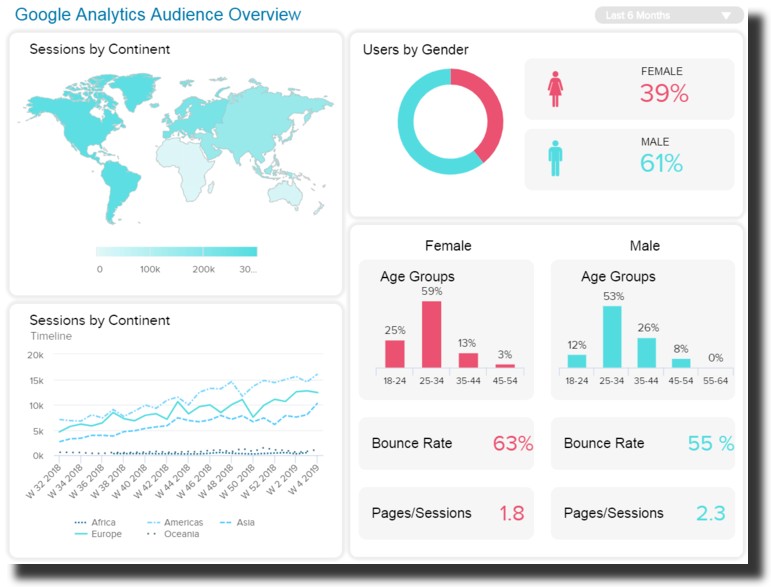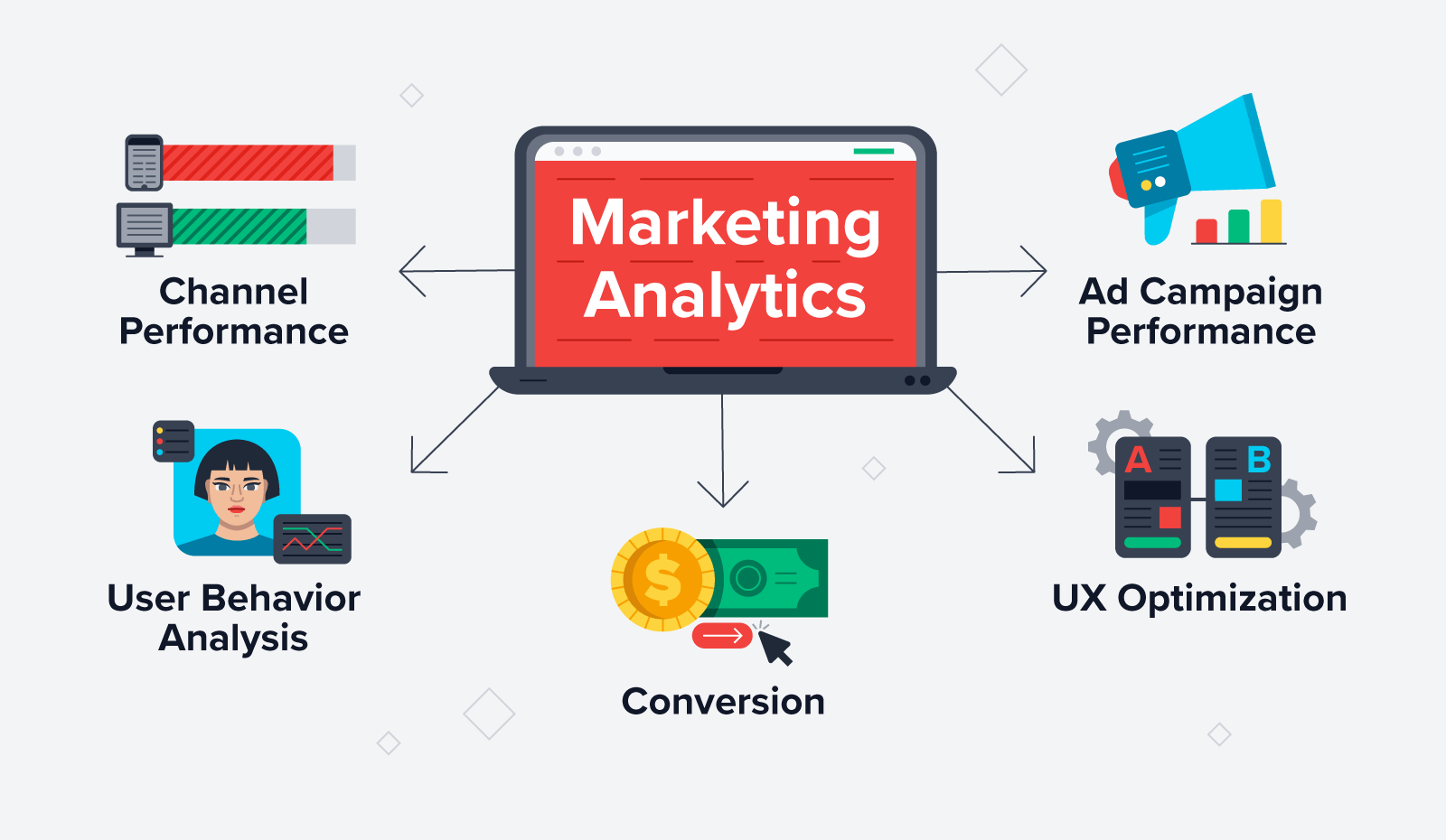Unleash the Full Prospective of Information Making Use Of Durable Analytics
Unleash the Full Prospective of Information Making Use Of Durable Analytics
Blog Article
Increase Efficiency and Earnings With Data Analytics
In today's data-driven landscape, services are progressively acknowledging the essential function of data analytics in enhancing operational performance and profitability. By methodically examining data, organizations can reveal crucial insights that inform strategic choices, simplify processes, and tailor consumer experiences (Analytics). The obstacle lies not just in the implementation of these logical tools but likewise in understanding just how to equate information right into workable outcomes. As we discover the nuances of reliable data-driven techniques, the implications for both temporary gains and long-term success come to be increasingly clear. What might these understandings reveal for your company?
Recognizing Information Analytics
In today's data-driven landscape, understanding information analytics is vital for organizations intending to improve operational performance and drive profitability. Information analytics entails the methodical computational analysis of data sets to uncover patterns, correlations, and understandings that inform decision-making. By employing various methods, such as analytical evaluation, machine understanding, and predictive modeling, organizations can change raw information right into workable knowledge.
The process typically begins with information collection, where relevant details is gathered from numerous sources, consisting of transactional data sources, consumer communications, and market patterns. This data is then cleaned and arranged to guarantee precision and uniformity. Once the information is prepared, logical devices and software application are used to picture the information and explore, allowing stakeholders to recognize trends and anomalies.
Eventually, recognizing data analytics equips organizations to make informed choices based upon empirical evidence instead of intuition. It helps with targeted approaches that can enhance resource allowance, enhance customer fulfillment, and improve total performance. As companies increasingly recognize the value of data-driven insights, a strong understanding of information analytics ends up being a critical competency for groups and leaders alike, placing them for sustained success in a competitive setting.

Trick Advantages for Companies
Companies that take advantage of information analytics can unlock a multitude of benefits that significantly improve their operations and earnings. Among the primary benefits is enhanced decision-making. Information analytics offers actionable understandings obtained from real-time information, permitting organizations to make enlightened choices that line up with market needs and customer choices.

Furthermore, data analytics promotes boosted consumer experiences. By comprehending client actions and preferences, services can tailor their offerings, causing enhanced fulfillment and loyalty. This customized method usually leads to higher conversion prices and repeat service.
Moreover, data analytics allows organizations to determine arising patterns and chances. By remaining in advance of the curve, companies can take advantage of new markets and advancements before their rivals.
Applying Data-Driven Techniques
Successful implementation of data-driven approaches requires an extensive understanding of both readily available data and business objectives sources. Organizations has to initially specify their goals plainly, ensuring alignment in between information efforts and strategic aims. This clarity allows teams to concentrate on appropriate metrics and insights that drive decision-making.
Next, organizations should evaluate their existing data infrastructure. This involves evaluating data top quality, ease of access, and assimilation capacities. Top notch data is necessary for accurate evaluation, as bad information can cause misdirected techniques and squandered sources. Organizations must establish processes for data collection, cleansing, and administration to preserve data integrity.
Additionally, promoting a data-driven culture is essential. Employees at all degrees ought to be motivated to leverage information in their everyday operations. Educating workshops and programs can enhance information literacy, empowering personnel view publisher site to make educated choices based on logical understandings.
Devices and Technologies Introduction
A durable collection of tools and technologies is vital for companies aiming to harness the complete potential of information analytics. These devices facilitate the collection, processing, and visualization of information, making read it possible for services to obtain actionable understandings.
At the fundamental degree, information management systems such as SQL data sources and NoSQL systems supply reliable data storage space and access capabilities. For data handling and evaluation, shows languages like Python and R, in addition to structures such as Apache Flicker, enable intricate calculations and equipment understanding applications.
Visualization tools, including Tableau and Power BI, transform raw data right into user-friendly visual styles, making insights available to stakeholders whatsoever degrees. Furthermore, cloud-based systems like Google Cloud and AWS supply scalable website link storage space and handling remedies, suiting the expanding volumes of data companies experience.
For sophisticated analytics, anticipating modeling and AI-driven options are significantly adopted, enabling companies to anticipate trends and enhance decision-making procedures. Incorporating these devices into existing operations is vital; companies that effectively utilize this innovation can substantially enhance functional efficiency and drive productivity. Thus, spending in the right tools and innovations is a tactical important for any kind of data-driven organization.
Study of Success
Leveraging information analytics has actually led numerous organizations to accomplish impressive renovations in efficiency and earnings. One notable situation is a large retail chain that implemented predictive analytics to maximize inventory management. By examining historic sales information and client fads, the firm reduced excess inventory by 30%, leading to considerable expense savings and enhanced capital.
One more example can be discovered in the manufacturing industry, where a leading automobile producer used data analytics to improve its production processes. By keeping track of device performance in real-time, the company recognized traffic jams and inadequacies, leading to a 20% increase in overall tools efficiency (OEE) This not only increased manufacturing rates however also minimized downtime and upkeep prices.

These instance research studies highlight exactly how information analytics can drive tactical decision-making, maximize processes, and eventually boost both effectiveness and profitability across numerous industries.
Verdict
To conclude, the assimilation of data analytics into organization operations provides significant chances for boosting efficiency and success. By methodically analyzing data, companies can recognize ineffectiveness, enhance customer experiences, and make educated choices. The adoption of predictive modeling and real-time tracking better enables companies to stay in advance of arising fads and allocate resources successfully. Inevitably, the tactical application of data-driven methods cultivates continual competitive benefits and drives substantial improvements in operational efficiency and financial outcomes.
In today's data-driven landscape, comprehending information analytics is crucial for organizations intending to boost functional effectiveness and drive success. Information analytics involves the methodical computational evaluation of data sets to uncover patterns, connections, and insights that inform decision-making. Information analytics provides actionable insights acquired from real-time data, permitting organizations to make informed selections that straighten with market needs and consumer choices.
Top notch information is important for exact evaluation, as bad information can lead to misguided approaches and lost resources. Organizations needs to develop processes for data collection, cleaning, and monitoring to preserve information honesty.
Report this page